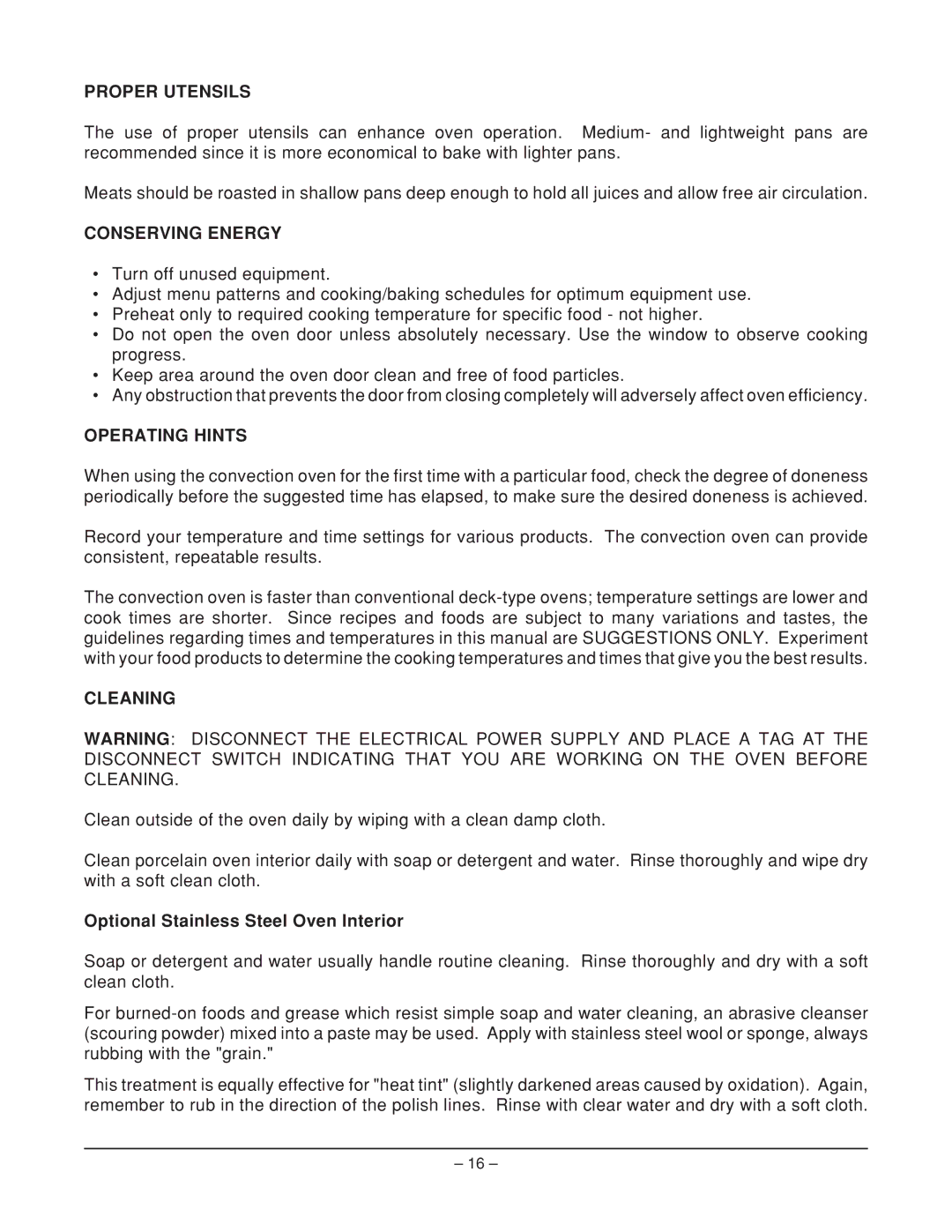HEC20 ML-114574, HEC20D ML-114576 specifications
The Hobart HEC20D and HEC20 are two advanced food processing machines designed to meet the increasing demands of commercial kitchens and industrial food preparation facilities. With model numbers ML-114576 and ML-114574, respectively, both machines are renowned for their reliability, efficiency, and innovative features.The Hobart HEC20D stands out for its durable construction and user-friendly design. Equipped with a powerful motor, it offers a robust performance that can handle diverse tasks, from mixing to chopping to pureeing. The machine features a wide range of speed settings, allowing users to customize the processing of various ingredients for optimal results. Its stainless steel bowl not only ensures durability but also provides a hygienic space for food preparation. Furthermore, the ergonomic design includes a safety interlock system, which prevents operation until all components are securely in place, ensuring the highest safety standards in food processing.
On the other hand, the Hobart HEC20 is designed with similar robust features but differs slightly in terms of application flexibility and technological enhancements. It also boasts a powerful motor and variable speed control, making it suitable for mixing, whipping, and blending various ingredients. The HEC20 model is known for its intuitive controls, allowing operators to switch between tasks seamlessly. Its compact design makes it suitable for kitchens with limited space without compromising on performance.
Both models incorporate advanced technology, including easy-to-clean surfaces, which are essential in maintaining hygiene in busy kitchens. Their heavy-duty construction can withstand the rigors of daily use, catering to high-volume production environments. Another noteworthy characteristic is their versatility; both machines can accommodate different attachments and accessories, enhancing their functionality for various culinary tasks.
In terms of energy efficiency, Hobart has integrated features that minimize power consumption without sacrificing performance. This focus on sustainability not only reduces overhead costs but also aligns with the growing demand for eco-friendly operations in the food industry.
In conclusion, the Hobart HEC20D ML-114576 and HEC20 ML-114574 are exemplary machines that combine advanced technology, durability, and versatility. They serve as invaluable assets for food service operators looking to optimize their kitchen operations while maintaining impeccable food quality and safety.
